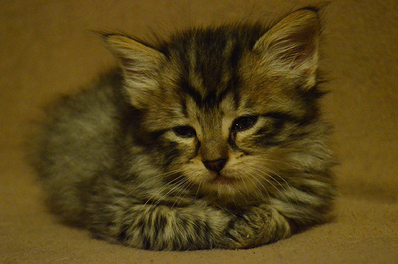
Has your puss-in-boots lost the spring in her step? Has he turned tail and taken off at your approach? Has she given her food a sudden “paws down”? Has the love light dimmed in his eyes?
Then, perhaps all’s not well in kitty town.
The more attuned you are to your cat’s daily routines and behavior, the sooner you’ll notice even the subtlest of changes. While some may be minor and easily managed, others can be life threatening, requiring a vet’s swift attention.
Consider the following (in alphabetical order):
ANTISOCIAL BEHAVIOR
Your friendly, affectionate and playful cat abruptly stops interacting with you or the other pets in your home.
BLOOD IN THE URINE
In a young cat’s urine, it can be a genetic issue or a sign of cancer, while in older cats, it can signal blood clots or disease. It can also be the result of a blockage caused by crystals in the urine or a urinary tract infection in both young and old cats.
CHANGES IN GUMS
Often accompanied by bad breath, red, swollen gums indicate gum disease. Before starting your own cleaning regime, ensure that your cat doesn’t need professional treatment first.
COAT OR SHEDDING CHANGES
This includes sudden grooming changes, excessive shedding or the blowing of most of your cat’s minimally groomed coat.
CONSTIPATION
If your cat cries, behaves differently or can’t defecate in the litter box, constipation due to a blockage, change in diet or urinary tract disease may be the culprit.
COUGHING OR DIFFICULTY BREATHING
A change in your cat’s breathing that is NOT due to exercise can be caused by dehydration, toxicity, asthma, respiratory disease, heart disease (CHF), worms or tumors.
DIARRHEA
Whatever the cause, if the diarrhea persists for more than a day, or appears either black or bloody, see your vet as quickly as possible.
DIFFICULTY MOVING OR WEAKNESS
Although both can be signs of arthritis or muscle atrophy, they may also be signs of some neurological issues, and should be explored more thoroughly by your vet.
DISORIENTATION
Failing to complete routine tasks, walking about aimlessly, forgetting people, using odd places as litter boxes and misjudging distances may be signs of neurological disorders or cognitive dysfunction syndrome.
DRAGGING REAR LEGS
Typically caused by a blood clot passing from the heart to the lungs, these clots can also travel to other areas, causing such problems as seizures and kidney failure.
EYE OR NASAL DISCHARGE
These discharges may also be accompanied by sneezing, panting or shortness of breath – all signs of a possible illness or respiratory infection.
FEVER
If your cat seems out of sorts, use a digital rectal thermometer to check your cat’s temperature. Any reading above 102.5 degrees F is considered a fever, and organ damage starts closer to 106 degrees.
GROWTH OR LUMP
Among the possible causes for this are an infected cat bite, an injection reaction, a hernia, a cyst, a benign tumor, or cancer.
INCREASED THIRST OR URINATION
Drinking more water than usual or taking more trips to the litter box may be a sign of diabetes, kidney problems or other conditions.
ITCHY OR FLAKING SKIN
Either can be signs of dermatitis or an allergy, and the most common causes of allergies are reactions to a medication, changes in diet or parasites.
LETHARGY
This includes unusual laziness, drowsiness, delayed reactions and excessive sleeping for more than a day, and should be checked out by your vet.
LOSS OF APPETITE
Although reputed to be finicky eaters, any dramatic changes in your cat’s regular eating habits are cause for concern.
REPEATED GAGGING OR VOMITING
When self-grooming has less to do with ingesting small fur balls and more to do with having swallowed a larger foreign object that may be causing an obstruction.
WEIGHT LOSS OR GAIN
The cause can range from simple stress to more serious conditions such as diabetes, parasites, viruses, gastrointestinal problems, hyperthyroidism and cancer.
As your cat’s loving guardian, you are that cat’s closest observer, best advocate, and first line of defense. When in doubt, no issue should seem too small before you visit your vet for an accurate diagnosis and a treatment plan if needed.









 RSS Feed
RSS Feed